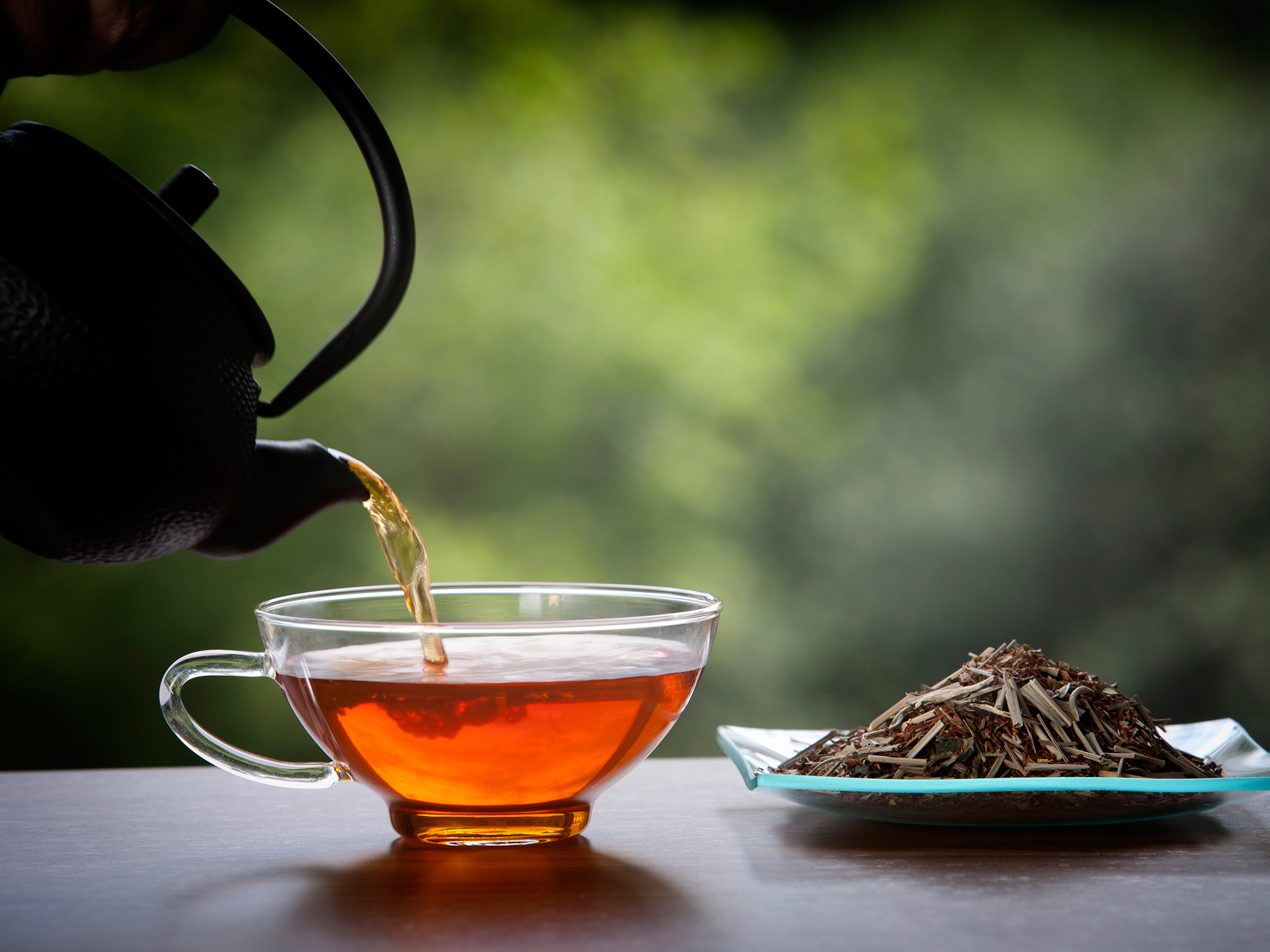Get Easy Health Digest™ in your inbox and don’t miss a thing when you subscribe today. Plus, get the free bonus report, Mother Nature’s Tips, Tricks and Remedies for Cholesterol, Blood Pressure & Blood Sugar as my way of saying welcome to the community!
A cancer-killing tea you’ve never heard of

Traditional medicines worldwide have long used herbal remedies for treating a wide range of infections, ailments and diseases.
That’s because many of them — especially taken as tea — contain natural compounds with some serious health benefits…
Take pu-erh, for example, the tea that helps you drop pounds, cholesterol points and blood sugar levels. Like most well-known herbal teas, pu-erh originates from China.
But an unusual tea you’ve likely never heard of, from a different part of the world, may be stealing the show soon…
Originating in South Africa, rooibos tea (also known as red tea or red bush tea) is a caffeine-free beverage that comes from the Aspalathus linearis shrub. The leaves of the shrub are fermented to create an herbal tea that makes the perfect substitute for regular caffeinated tea.
Like green tea — a well-known potent cancer-fighter — rooibos contains high levels of flavonoids and polyphenols (209.1 ug/mg total compounds), coming in just above the content found in green tea (200.8 ug/mg).
The beneficial compounds in rooibos include aspalathin (the major compound), luteolin, rutin, vitexin, isoorientin and isovitexin, among others. And it’s these very compounds that pack a powerful punch against cancer…
Rooibos decreases inflammation in cells
The development of cancer has a very strong link to increased inflammation in the body’s cells. So anywhere you can find a healing food to help decrease the inflammation abomination, you’re onto a good thing…
Using green tea as a benchmark, researchers put rooibos tea to the test to see if it could decrease inflammatory markers that promote skin cancer. Their findings revealed that after exposure to the sun, rooibos provides protection to skin cells that could switch to cancer, aiding the body to remove any affected cells from the body.
Rooibos prevents oxidative stress
When cancer develops there is a direct imbalance between free radicals and antioxidants in the body. This leads to what’s known as oxidative stress and free radical damage to DNA cells.
Rooibos is a potent free radical scavenger, enhancing your antioxidant defences and acting on a variety of reactive oxygen disease-causing species — superoxide anions, hydroxyl radicals, and hydrogen peroxide.
Rooibos may stop the multiplication of cells
Methanol and aqueous extracts in rooibos tea stop proliferation of cancer cells, both premalignant and cancerous cells.
When compared to green tea, which is well known for its cancer preventative power, rooibos was found to have the highest activity against cancerous cell lines.
Rooibos may directly kill cancer cells
Compared to other herbal teas, rooibos can even cause apoptosis (cancer cell death), shown to affect more than 30 percent of cancerous cells.
This action is particularly strong for premalignant cells, where rooibos has been shown to target the genetically altered troublesome cells and give them a kick before they take hold.
Rooibos protects normal cells from becoming cancerous
Researchers have also discovered that rooibos is involved in the removal of precancerous cells, protecting normal cells by arresting the cell cycle progression and cell growth that leads to cancer.
Quite amazing for an herbal tea — rooibos lines up the army to stop those cancer cells charging forward!
You can purchase rooibos tea at any health food outlet and even many supermarkets. Just boil some water, infuse the tea bag or tea leaves for 2-5 minutes and start drinking the benefits. It’s best to drink plain but you can also add milk and sweetener if you prefer.
Editor’s note: Discover how to live a cancer prevention lifestyle — using foods, vitamins, minerals and herbs — as well as little-known therapies allowed in other countries but denied to you by American mainstream medicine. Click here to discover Surviving Cancer! A Comprehensive Guide to Understanding the Causes, Treatments and Big Business Behind Medicine’s Most Frightening Diagnosis!
Sources:
-
Magcwebeba TU, et al. In Vitro Chemopreventive Properties of Green Tea, Rooibos and Honeybush Extracts in Skin Cells. Molecules. 2016;21(12):1622.
-
Magcwebeba T, et al. Anti-Inflammatory Effects of Aspalathus linearis and Cyclopia spp. Extracts in a UVB/Keratinocyte (HaCaT) Model Utilising Interleukin-1α Accumulation as Biomarker. Molecules. 2016;21(10):1323.
-
Waisundara VY, et al. Free radical scavenging ability of Aspalathus linearis in two in vitro models of diabetes and cancer. J Tradit Complement Med. 2015;5(3):174–178.












